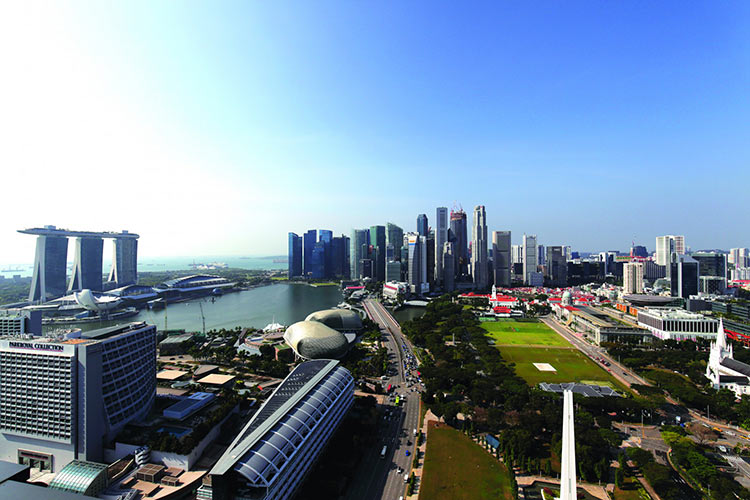

A report by Savills reveals that despite rising inflation the City-State is poised to stay resilient
January 05, 2023 | Staff Reporter | Singapore | Real Estate

The Singapore real estate market will remain a bright spot globally, amid growing macroeconomic headwinds, according to Savills Research. While rising inflation and recession concerns have cast a shadow over global real estate markets, the city-state is poised to stay resilient.
“In general, Singapore’s real estate market should be in a good position to ward off the ill-effects of global economic problems and global political tensions,” says Alan Cheong, executive director of Savills Singapore Research and Consultancy.
Cheong adds that the Singapore market remains bolstered by a relative lack of supply for most sectors, while developers in the residential market also possess strong financial holding power. As such, the market is able to “overcome the effects of higher interest rates and economic slowdown”.
Singapore saw $9.1 billion in real estate investment deals during the first three quarters of 2022, up 47% from the same period in 2021, based on MSCI Real Assets figures. Savills also highlights that the residential rental sector charted strong performance, with rents for private residential properties jumping 8.6% q-o-q in 3Q2022, the highest quarterly increase in 15 years.
Other sectors similarly show healthy indicators, including the office sector which continues to see rising rents for CBD offices amid falling vacancy, while rents for logistic properties are also expected to continue growing in 2023.
The International Monetary Fund is projecting Singapore to chart gross domestic product (GDP) growth of 2.3% in 2023, outstripping the 1% and 0.5% GDP growth rates forecast for the US and EU respectively.
Savills also notes that other Asian economies, including China, Vietnam, Indonesia and India, are forecast to lead global growth.
The consultancy highlights that in Vietnam, growing foreign direct investment and government reforms are boosting overseas interest in the real estate market. For example, Singapore’s CapitaLand announced earlier this year that it would buy a site in Ho Chi Minh City for a $1 billion mixed-use development.
Meanwhile, Japan is expected to benefit from low-interest rates as well as the weak Japanese yen. “Japan continues to attract overseas investors due to the positive spread between debt costs and yields. The multifamily and logistics sectors continue to be favourites; however there is also more interest in offices and in the recovering hospitality sector,” says Tetsuya Kaneko, head of research and consultancy at Savills Japan.